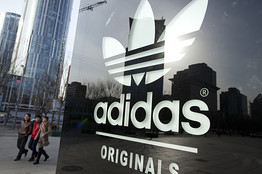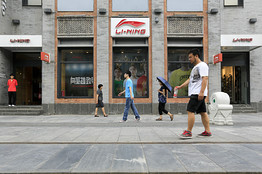- Joined
- Dec 17, 2009
- Messages
- 13,811
- Likes
- 6,734
China's Car Dealers Will Boost Discounts Facing Rising Inventories
China's automobile dealers will increase incentives and discounts as they struggle with a worsening glut in the world's biggest vehicle market, according to the nation's top economic planner.
Average retail vehicle prices fell 1.2 percent in June from a year earlier, with those for passenger vehicles dropping 1.9 percent, said Cheng Xiaodong, head of a unit that monitors auto prices at the National Development and Reform Commission. In May, passenger-vehicle prices slumped the most in about two years because of overstocking.
"The oversupply situation persists," Cheng said in an e- mailed statement today. "Facing slugging demand and rising inventory, dealers will increase discounts and incentive offerings in the coming months."
Average inventory carried at Chinese showrooms exceeded two months of sales by the end of May, compared with more than 45 days at the end of April, Luo Lei, deputy secretary general of the state-backed China Automobile Dealers Association, said in an interview on June 6. The glut at the dealerships, which is leading to price cuts, is unsustainable, he said.
Wholesale passenger-vehicle sales rose 16 percent in June to 1.28 million units, according to the auto association. The shipments beat the 1.27 million average estimate of 14 analysts surveyed by Bloomberg. Automakers, also known as original equipment manufacturers, only disclose the number of vehicles sold to Chinese dealers, instead of consumers.
China's Car Dealers Will Boost Discounts on Inventory, NDRC Says - Bloomberg
China's automobile dealers will increase incentives and discounts as they struggle with a worsening glut in the world's biggest vehicle market, according to the nation's top economic planner.
Average retail vehicle prices fell 1.2 percent in June from a year earlier, with those for passenger vehicles dropping 1.9 percent, said Cheng Xiaodong, head of a unit that monitors auto prices at the National Development and Reform Commission. In May, passenger-vehicle prices slumped the most in about two years because of overstocking.
"The oversupply situation persists," Cheng said in an e- mailed statement today. "Facing slugging demand and rising inventory, dealers will increase discounts and incentive offerings in the coming months."
Average inventory carried at Chinese showrooms exceeded two months of sales by the end of May, compared with more than 45 days at the end of April, Luo Lei, deputy secretary general of the state-backed China Automobile Dealers Association, said in an interview on June 6. The glut at the dealerships, which is leading to price cuts, is unsustainable, he said.
Wholesale passenger-vehicle sales rose 16 percent in June to 1.28 million units, according to the auto association. The shipments beat the 1.27 million average estimate of 14 analysts surveyed by Bloomberg. Automakers, also known as original equipment manufacturers, only disclose the number of vehicles sold to Chinese dealers, instead of consumers.
China's Car Dealers Will Boost Discounts on Inventory, NDRC Says - Bloomberg




